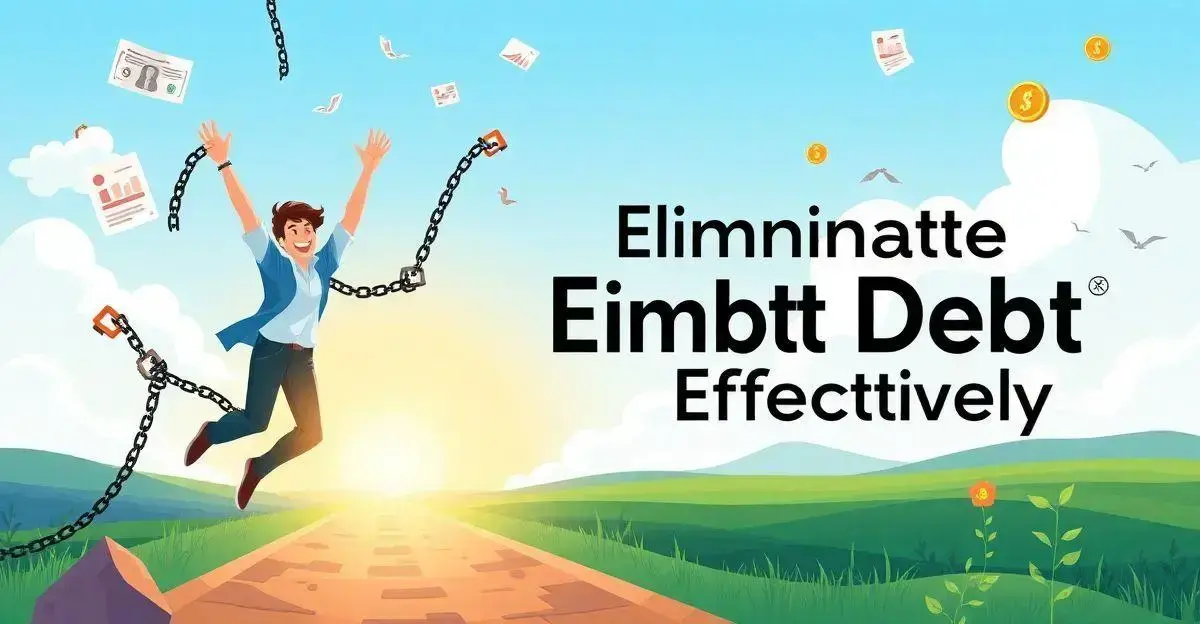Índice
Financial independence is a dream for many, representing ultimate freedom and control over one’s life.
By mastering budgeting, investing, and saving strategies, you can transform your financial future.
Understanding Financial Independence
Understanding financial independence is crucial for anyone looking to gain control over their financial future. It means having enough savings, investments, and cash on hand to afford the lifestyle you want for yourself and your family. This freedom allows you to make choices without being pressured by financial constraints.
To achieve financial independence, you need to learn about budgeting, saving, and investing wisely. Start by tracking your expenses to understand where your money is going. This awareness can help you identify areas where you can cut back. Creating a strict budget will enable you to save more effectively towards your goals.
Additionally, educating yourself about investment options, such as stocks, bonds, and real estate, can help grow your wealth over time. Each option has its own risks and rewards, so it’s essential to do thorough research before diving in. Having a diversified portfolio can protect you against market fluctuations.
Ultimately, the journey to financial independence requires discipline, education, and a commitment to making smart financial choices. By understanding the principles behind it, you can take actionable steps toward a secure and independent financial future.
The Importance of Budgeting

Budgeting is a fundamental skill that everyone should master in their journey towards financial independence. It is the process of creating a plan to manage your income and expenses effectively. By understanding where your money goes each month, you can make better decisions about saving and spending.
To create a budget, start by listing all your sources of income. Then, track your expenses, categorising them into fixed (like rent and bills) and variable (like entertainment and groceries). This breakdown helps you identify patterns in your spending habits and areas where you can cut back.
Setting financial goals is also a key aspect of budgeting. Decide what you want to achieve, whether it’s saving for a home, paying off debt, or building an emergency fund. Allocating a portion of your income to these goals can drive your motivation and keep you on track.
It’s essential to review your budget regularly. Make adjustments as needed, and celebrate small wins along the way. The discipline gained from budgeting contributes to overall financial health and ultimately leads to financial independence. By prioritising your financial education and sticking to your budget, you’re investing in a future where money doesn’t dictate your choices.
Investing for Financial Independence
Investing for financial independence is a critical step in building wealth and securing your future. It involves allocating your money into various assets with the expectation of generating income or profit. The sooner you start investing, the more your money can grow through the power of compounding.
Before you begin, it’s important to understand the different types of investments available. These can include stocks, bonds, mutual funds, real estate, and more. Each type has its own risk and reward profile, so it’s essential to do your research and choose the ones that align with your financial goals and risk tolerance.
Start by setting clear investment goals. Are you saving for retirement, a future purchase, or simply growing your overall wealth? Knowing your goals will help inform your investment strategy. Consider consulting with a financial advisor if you’re unsure where to begin or how to create a diversified portfolio.
Additionally, it’s wise to maintain an emergency fund before investing. This fund will cover unexpected expenses, allowing you to keep your investments intact during tough times. Once you’re comfortable with your savings, consistently contribute to your investment accounts. Regular investments, even in small amounts, can make a significant difference over time.
Market fluctuations are normal, and it’s crucial to remain patient and avoid panic selling. Focus on your long-term goals rather than short-term market movements. By staying informed and committed to your investment strategy, you will be well on your way to achieving financial independence.
Building Multiple Income Streams

Building multiple income streams is a smart strategy for achieving financial independence. Relying solely on one source of income can be risky, as job loss or economic downturns can affect your financial stability. By creating additional income streams, you can protect yourself and ensure a steady flow of money.
How to Make Money Online is one of the most accessible and flexible ways to build additional income. You can start by exploring options such as freelance work, part-time jobs, or even starting a side business.
The internet offers numerous opportunities, from selling products online to offering services like tutoring or consulting. It’s essential to choose income streams that align with your skills and interests for better results.
Real estate investing is another effective way to generate passive income. Buying rental properties can provide regular cash flow, and over time, property values typically appreciate. However, this option requires initial capital and knowledge of the market.
Investing in stocks and dividends can also lead to multiple income sources. By purchasing shares of companies that pay dividends, you can receive regular payments simply for being a shareholder. This approach helps grow your wealth while providing ongoing income.
Additionally, consider creating digital products such as e-books, online courses, or membership sites. These can provide ongoing income with minimal effort once established. Diversifying income streams is about maximizing potential earnings while reducing risk.
With careful planning and effort, you can build a robust, diverse income portfolio that supports your journey toward financial independence.
Saving for Retirement Early
Saving for retirement early is one of the smartest financial decisions you can make to achieve financial independence. The sooner you start saving, the more time your money has to grow through interest and compounding. Many people underestimate the power of starting early, believing they can catch up later. However, saving small amounts consistently over time can lead to a substantial retirement fund.
Consider using tax-advantaged accounts such as a retirement annuity or a pension fund. These accounts not only help you save but can also lower your taxable income. Aim to contribute a portion of your income regularly, ideally at least 15%. This habit will create a strong foundation for your future.
It’s also important to create a budget that allows for retirement savings. Check your spending habits and look for areas where you can cut back. Redirect those savings into your retirement account. This disciplined approach ensures you prioritise your future while still enjoying the present.
As your career progresses and you earn more, try to increase your contributions. Raise your savings rate whenever you receive a pay increase or bonus. This practice can significantly impact your retirement savings over time. By planning and saving early, you are taking critical steps toward securing your financial future.
Finally, educate yourself about investments. Choose a suitable mix of risk and growth that aligns with your retirement goals. Understanding the various investment options will help you grow your retirement savings effectively, guiding you closer to financial independence.
Eliminating Debt Effectively

Eliminating debt effectively is a crucial step towards achieving financial independence. Debt can weigh you down, making it hard to save and invest for the future.
The first step to eliminating debt is to identify all your debts, including credit cards, loans, and any other obligations. This will help you see the full picture and understand how much you owe.
Next, create a budget that outlines your monthly expenses and income. This budget will help you allocate funds to pay off your debts. Consider using the snowball method, where you pay off the smallest debts first while making minimum payments on larger ones. This approach can provide quick wins and build your motivation.
Another effective strategy is the avalanche method, where you focus on paying off debts with the highest interest rates first. This method will save you money in interest over time. It’s essential to stay committed and avoid accumulating new debts while you are paying off old ones.
Consider talking to a financial advisor or a credit counsellor if you’re feeling overwhelmed. They can provide valuable insights and help develop a personalised plan to manage your debt. Utilize any windfalls such as bonuses or tax returns to make extra payments towards your debt.
Finally, once you’ve eliminated debt, continue to practice good financial habits. Avoid unnecessary purchases and make savings a priority. This discipline will help you maintain your newfound financial independence and secure your future.
Creating a Financial Independence Plan
Creating a financial independence plan is essential for those seeking to take control of their financial future. This plan acts as a roadmap, guiding you toward your financial goals.
Start by identifying what financial independence means to you. This could include retiring early, travelling extensively, or pursuing hobbies without financial worry.
Next, assess your current financial situation. Calculate your net worth by listing all your assets, such as savings, investments, and property, and subtracting any liabilities, like debts. This assessment provides a clear picture of where you stand.
Setting specific, measurable, achievable, relevant, and time-bound (SMART) goals is vital. For instance, aim to save a particular amount each month or pay off debt by a certain date. These goals keep you focused and motivated.
Budgeting is a crucial part of your financial independence plan. Create a budget that allows you to save a significant portion of your income while covering necessary expenses. Tracking your spending helps identify areas where you can cut back. Redirect those savings into your investment accounts.
Investing is another key component of your plan. Research different investment options, such as stocks, bonds, or real estate, and build a diversified portfolio that aligns with your risk tolerance and goals. Regular contributions to your investments can significantly impact your future wealth.
Lastly, review and adjust your financial independence plan regularly. Life changes and unexpected expenses can affect your goals, so staying flexible and adapting the plan as needed is essential for maintaining your path toward financial independence.
Maintaining Financial Independence

Maintaining financial independence is as important as achieving it. Once you reach your financial goals, it is crucial to develop habits that will help you preserve your wealth.
Start by consistently monitoring your budget and living within your means. This involves regularly tracking your income and expenses, ensuring that you do not fall back into reckless spending habits.
Establishing an emergency fund is essential. This fund will cover unexpected expenses without disrupting your financial independence. Aim to save at least three to six months’ worth of living expenses in a separate, easily accessible account.
Invest wisely to ensure your portfolio continues to grow. Diversification across different assets, such as stocks, bonds, and real estate, can help manage risks and provide regular returns. Review your investments periodically to make sure they align with your long-term financial goals.
Consider continuing education on financial matters. This ongoing learning can include books, online courses, or attending financial seminars. The more informed you are, the better decisions you will make, allowing you to adapt to changes in your financial situation or market conditions.
Networking with like-minded individuals can also support your journey. Surround yourself with those who have similar financial goals and values. This can provide motivation and accountability, helping you stay on track.
Finally, remember to enjoy your independence. Spend time and money on experiences that bring you joy, but do so wisely. Balancing enjoyment with financial responsibility is key to maintaining your financial independence over the long term.
Path to financial independence
By understanding the importance of budgeting, investing wisely, and eliminating debt, you lay a strong foundation for your financial future.
Additionally, continually educating yourself and building multiple income streams can further support your independence.
As you progress on this journey, remember to review your financial plan regularly and adapt to changes in your life and financial landscape.
Embrace the freedom that comes with financial independence, allowing it to empower you to make choices that align with your values and life goals.
